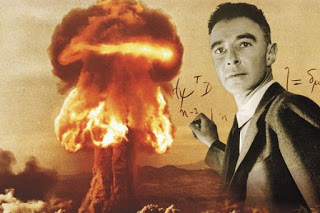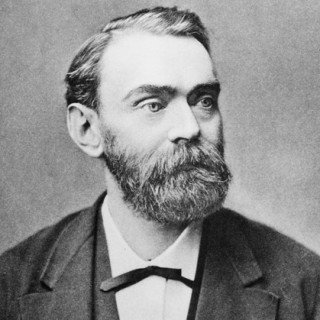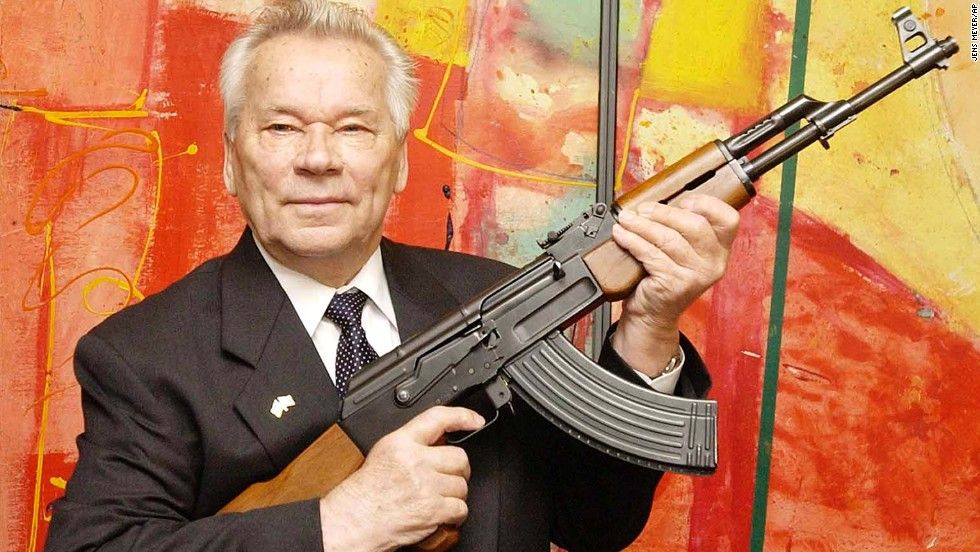The great scientist who regrets his findings..
J. Robert Oppenheimer

Invention: The Atomic Bomb
Einstein’s regret about the atomic bomb is well-known. But he wasn’t actually involved in the creation of it. Julius Robert Oppenheimer was. A gifted physicist with an interest in nuclear motion and Hindu spirituality, he helped begin an American pursuit of theoretical physics in disciplines such as astrophysics, nuclear physics, and quantum field theory. His research laid the groundwork for what we now know as black holes, but when World War II broke out he eagerly turned his attention to creating an atomic bomb as a way to end it. As the head of the Los Alamos Laboratory, he recruited top physicists to work on the project while he focused on creating fast neutron chain reactions to fuel the bomb. The result was Trinity, the very first hydrogen bomb test. It exploded with the force of 18,000 tons of TNT.
After seeing that power, Oppenheimer pushed for international control of atomic energy, and was ultimately appointed Chairman of the General Advisory Committee to the Atomic Energy Commission. While he voiced strong opposition to the development of the atomic bomb, his communist political ties prompted the government to revoke his security clearance. That ended his advocacy and forced him to refocus his research. He never forgot that outcome, though, and remained disappointed by it for the rest of his days.
Alfred Nobel

Invention: Dynamite
Alfred Nobel was a Swedish chemist, inventor, and engineer who was fluent in 5 languages by the age of 17. He is best known today as the creator of the Nobel Peace Prize, the highest honor for "those who, during the preceding year, shall have conferred the greatest benefit to mankind” according to his will. But as dedicated a humanitarian as Nobel was, his devotion to the Prize was born from his most famous invention: dynamite. Patented in 1867, Nobel invented dynamite as a safer, more stable construction explosive to nitroglycerin, which killed his younger brother Emil. Nobel hoped that by adding stabilizers to the nitroglycerin, he would create an invention to end war, not create it: "Perhaps my factories will put an end to war sooner than your congresses: on the day that two army corps can mutually annihilate each other in a second, all civilised nations will surely recoil with horror and disband their troops." Sadly, that was not the case, as armies quickly realized the weaponized potential of dynamite explosions. Dynamite explosions caused many deaths, so much so that when a French newspaper accidentally published Nobel‘s obituary they celebrated. The headline crowed “Le marchand de la mort est mort (The merchant of death is dead).” They continued, writing, "Dr. Alfred Nobel, who became rich by finding ways to kill more people faster than ever before, died yesterday.” Nobel was upset by that, and didn’t want his legacy to be one of death. That’s why he devoted the bulk of his inheritance to establish the Peace Prize.
Mikhail Kalashnikov

Invention: AK 47
Kalashnikov designed the rifle that bore his name for the Russian army at the end of the Second World War after witnessing terrible casualties in battle and being injured himself. Designed to be a simple automatic rifle that could be made cheaply using the mass production methods available at the time, Kalashnikov, who died in 2014, lived long enough to see his creation be responsible for more deaths than any other assault rifle.
"I keep coming back to the same questions. If my rifle claimed people’s lives, can it be that I…, an Orthodox believer, am to blame for their deaths, even if they are my enemies?" he wrote in a letter to the head of the Russian Orthodox church in 2010.
May be useful